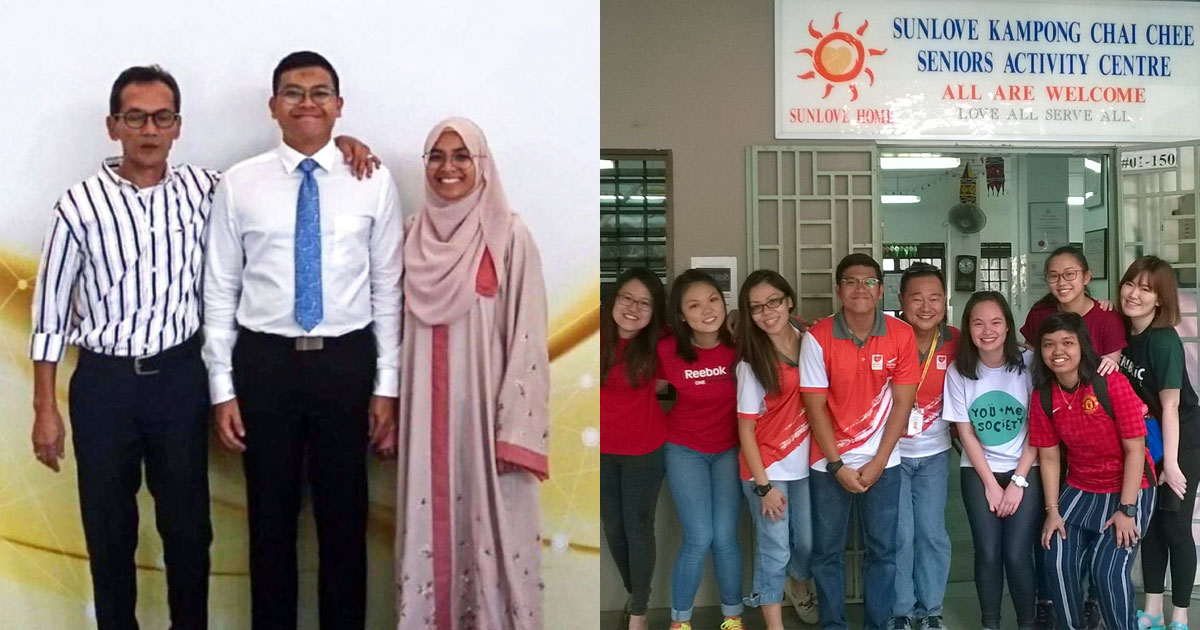If there is one thing you need to know about Zulhaqem Zulkifli, 27, it is this: Late bloomers can excel given the chance.
He is one of 93 recipients of the highly coveted Public Service Commission (PSC) Scholarship awarded on July 17, 2019.
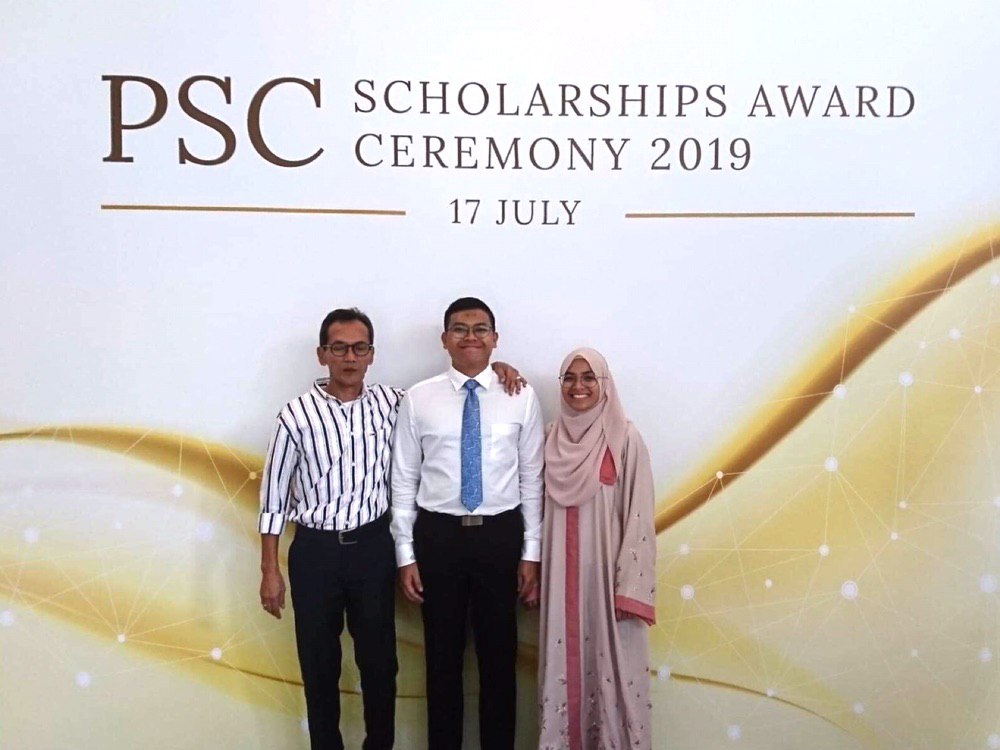
The public soon found out that his education journey was the most unusual: Zulhaqem went from the Normal (Academic) stream to being conditionally admitted into the three-year A-level Millennia Institute, where he was at risk of flunking out, and then to Nanyang Technological University (NTU), and finally now, progressing to Oxford.
His story was met with hearty congratulations, as well as some tsk-tsking, owing to what some perceived as an odd choice of study at Oxford.
The NTU philosophy student will be pursuing a master’s degree in Buddhist Studies at Oxford’s St Peter’s College this September.
Forum letters were written for and against his case, and PSC had even come out to defend Zulhaqem. (Full details here.)
In response to Mothership.sg queries, Zulhaqem was asked a series of questions about his unconventional journey, from being homeless to what drives him to volunteer despite his own predicament, and the one burning question many Singaporeans have: Why is a Muslim taking a master's degree in Buddhist studies, at Oxford, nonetheless?
Here are his answers.
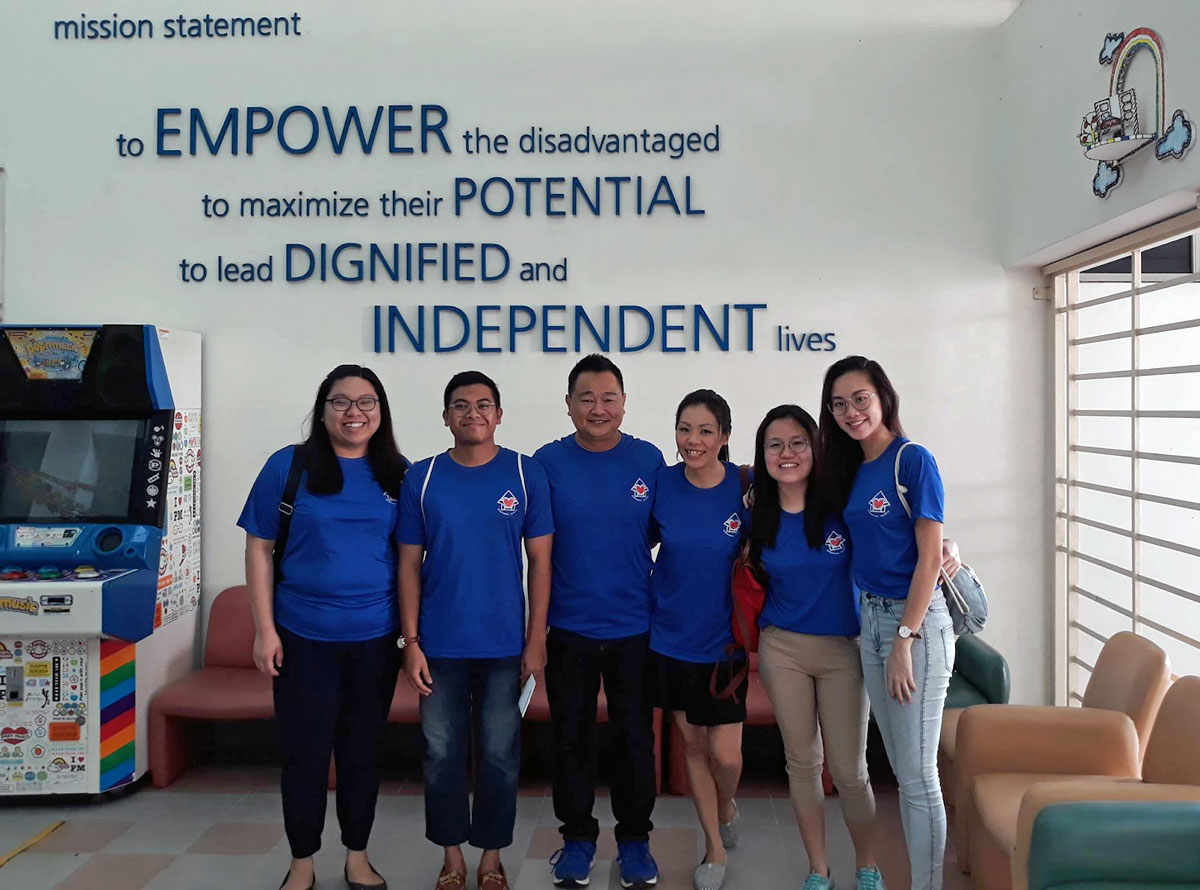 Zulhaqem Zulkifli, second from left.
Zulhaqem Zulkifli, second from left.
What is your family's situation like?
I have three other siblings -- two sisters and one brother.
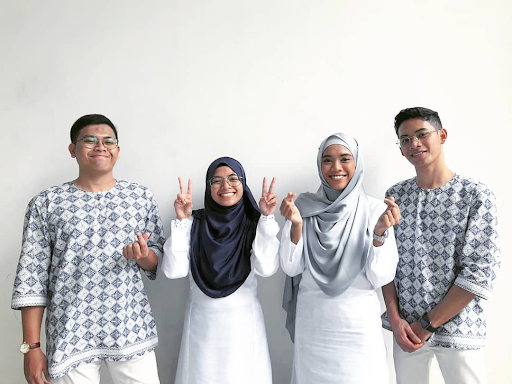 Zulhaqem Zulkifli and his siblings.
Zulhaqem Zulkifli and his siblings.
My parents divorced when I was 18. That was also around the time when we started to be nomads, moving and being chased out from one house to another until we finally found ourselves with no shelter.
We then applied for interim housing, and then finally, now we live in a two-room rental unit.
How did your family overcome the tight financial situation?
We all understood that our finances were tight. So, we all took part-time jobs and work to make ends meet, as well as applying for bursaries and financial aid wherever we could find it.
Our concept of savings also changed.
While we had our own personal savings, they were not really personal per se, as we usually collectively pooled our savings and decide who needs the money most.
So, for instance, if my brother needed to pay his school fees then we decide to give priority to him when utilising the shared savings.
It really boils down to who needs the money most and mutual cooperation and understanding.
How did you fare in school growing up?
I was from Gan Eng Seng Primary School and then I went to Gan Eng Seng School.
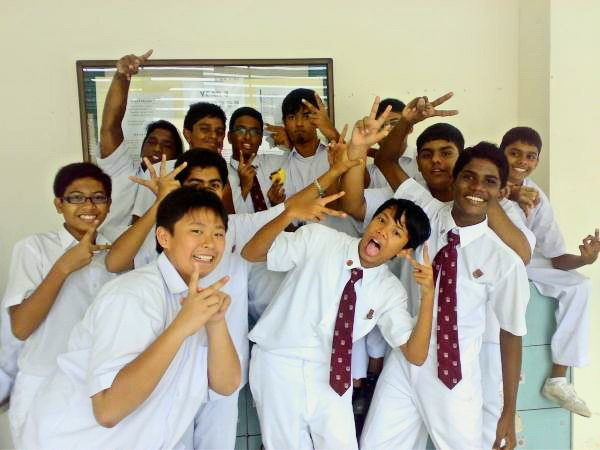
I was in the Normal (Academic) stream. I actually did my O-level Math three times, because after failing the first time, I was not able to go to any other schools except for ITE or Millennia Institute.
The latter is a three-year A-level institute that also has a conditional student programme, which allowed students to re-take their English or Math O-level for a maximum of two times.
I went to MI as a conditional student. I failed Math again in my first year, but cleared it in my second year, which was my final chance, really.
I had to juggle all this with my A-level studies and the issues at home.
I recall my teachers being worried for me during the results day, because they thought that it would be a waste if I had to leave. Thankfully, I cleared it.
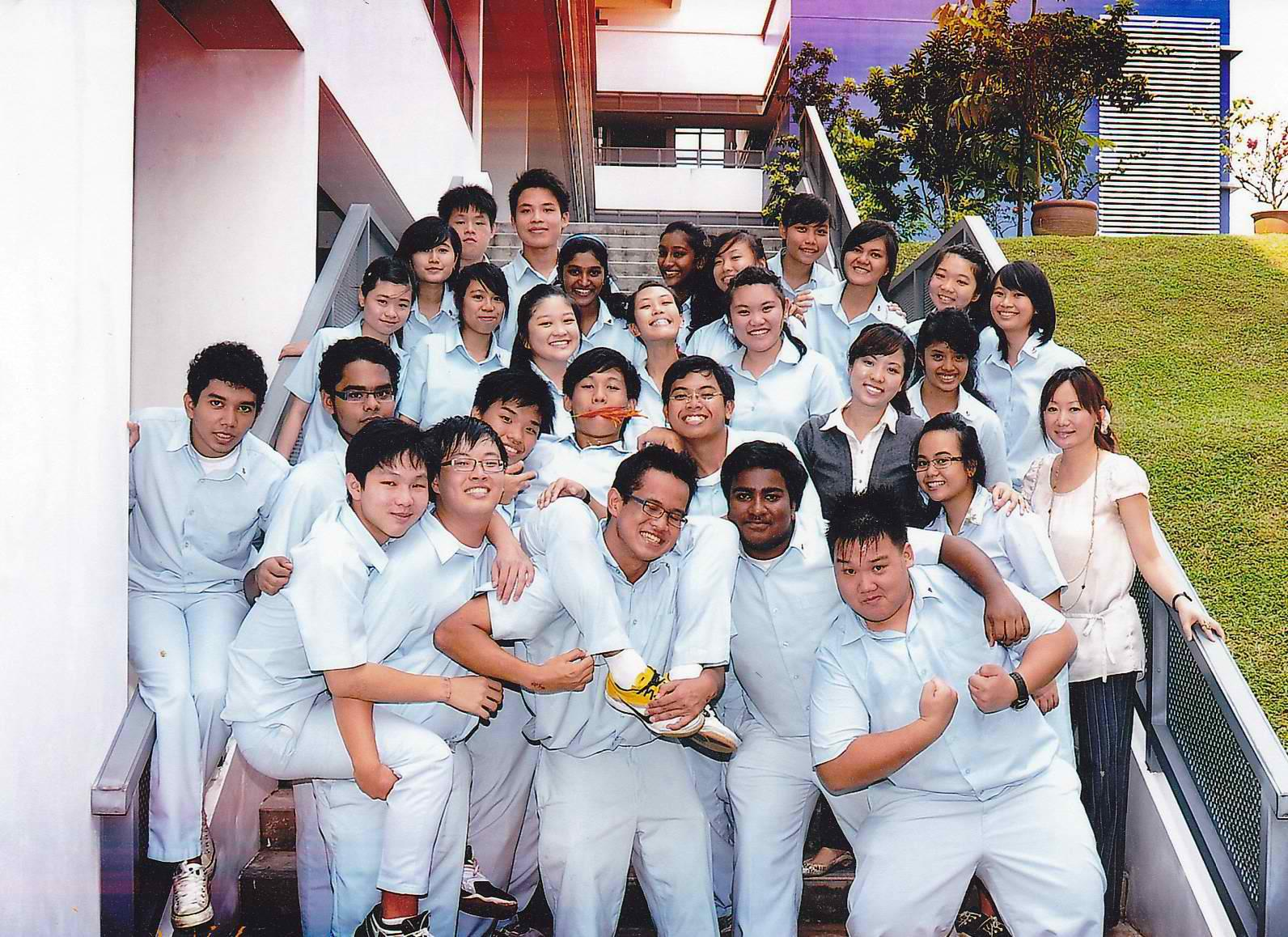
I am actually very thankful for MI because it is a beautiful place that takes in students that do not conventionally fit in.
It is not a polytechnic, and yet, not a junior college, and it is home to a plethora of different and diverse people.
This means that we get to develop our social skills and empathy towards others in an organic way. Not many people know this, but MI also takes in a high proportion of students with special needs.
This means that as fellow class and schoolmates, we also learned to navigate through life with them and along the way, cultivate a sense of compassion and understanding.
Because of this extremely diverse and plural background, I am actually proud to say that the one thing that defines MI students is their big hearts, compassion, and holistic personalities.
Another thing about MI is the dedication of the teachers. There is a saying in MI that in other schools, students chase their teachers for consultations.
But in MI, teachers chase their students for consultations. And this is very true. A teacher I know actually learned sign language to help a deaf student with his notes, and another goes out of the way and travels daily to get the braille script of a visually impaired student transcribed so that he could mark it.
Most teachers here also double up as social workers really. MI is not for faint-hearted teachers. They do not get extra pay for what they do, and neither are they obliged to do it.
Most are here because of their passion in teaching and helping students progress.
So, much like the students, passion and indeed, compassion are the hallmark of MI teachers.
I finally enrolled to Nanyang Technological University after my A-levels.
Five years in secondary school, three years in MI.
I guess you could say that I am the kind of person who just needed time. And people to believe in him.
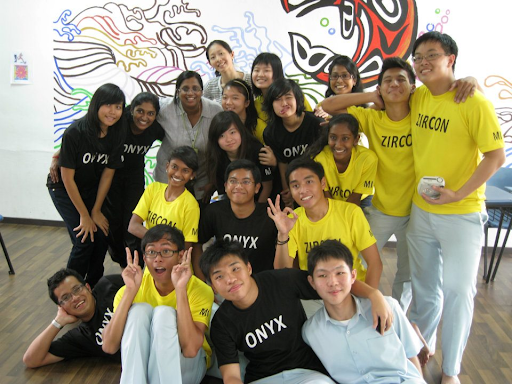
How did you cope with your studies and how was your father instrumental in keeping you and your siblings on the straight and narrow path?
Well, my father has always told us that our education is our ticket out from the kind of life we were living.
If we wanted to have a better life, then we better study and be good at what we do, although he did not limit it to just academic studies.
My brother pursued pastry-making and baking, to give an example.
So, my father was very supportive and at the same time, the conditions that we found ourselves in gave us reason to work hard.
If you have time to be worrying and being upset with how things are, then you definitely have time to make small gradual steps to achieving something better.
Unless it is really something that is beyond your control like waiting for results or something.
What made you decide to study Philosophy in NTU?
I have always been an inquisitive person and have always found myself asking why and how a lot.
My father always told us to be reflective and mindful as individuals and this I think has greatly shaped me and the way I think.
At the time of my ORD (Operationally Ready Date) year (at the completion of National Service), NTU had just announced the opening of the philosophy department and the philosophy programme.
I was contemplating enrolling into either NUS Faculty of Arts and Social Sciences or NTU Philosophy, when my father said: “If you already know what you want to do, why go through an unnecessary process.” -- in reference to FASS’s first year of trials.
Besides, he said, I could be part of setting a new culture in NTU.
So, everything made sense to me although I was criticised by some of my friends who chided me for not going to NUS, as it was perceived to be the better school to them.
On hindsight, going to NTU Philosophy was probably one of the best decisions I have made.
How did you cope with all the part-time jobs while still schooling?
I tend to plan ahead of time for my assignments and readings and learnt to prioritise the more pertinent tasks relating to school work.
This is because time is a limited resource and I have to plan my time wisely if I have to work later on.
It was difficult but after a few attempts -- and failed attempts -- I managed to get the hang of it.
Also I do not believe in the notion of “having no time”.
Perhaps in some instances it is true. But I think in most instances, we find that we really do have time.
We are just not utilising it efficiently.
So my motto is if there is no time, then you make time. So, I make time for studies, work, friends, and personal time.
This is not easy, but you just have to ask yourself what is more important to you in different contexts, and also, what are you willing to sacrifice.
Sacrifices are also important decisions.
You volunteered a lot. What are your motivations and experiences in doing so?
I like helping people. I think it could be a cliche and perhaps even too simplistic.
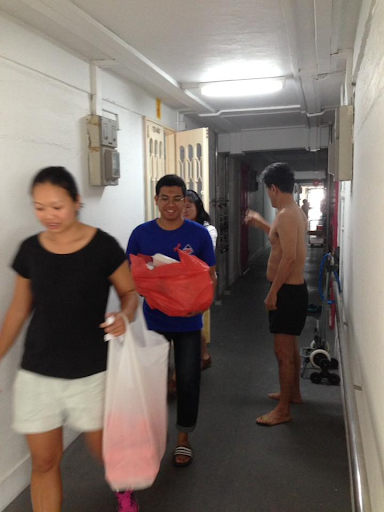
But that is the truth of it. Also being from a rather unhappy and underprivileged background shaped me a lot.
I understood -- without grossly simplifying things -- to a certain extent, the suffering and pain that others went through and so I thought that I had to do something about it, even if it was just a small act.
If we have to go through pain, hardship, and suffering, then the best thing we can get out of it is that we try to not let others go through the same.
I volunteered with Engaging Hearts, a ground-up volunteer group since 2010.
On weekends, we would go out to rental housing estates and senior citizen activity centres to not just engage with the people, but to also find out what help they need.
From there, we will link them up with the different government agencies and groups to get them the help that they need. There are a lot of invisible underprivileged in Singapore, and Engaging Hearts tries to shed more light and to pull them out in the open, so to speak.
We also get our volunteers from the many student bodies in the different JCs and polytechnics and expose them to a side of Singapore that is not seen.
I recall once we were knocking at the door of a rental unit and waited outside it for quite some time as we heard some clattering noises.
Finally, the door opened and we saw no one behind it until we noticed that there was an elderly woman on the floor gripping at the doors. Turns out she had lost the faculties of her legs and had to drag herself to the door when someone knocks, but usually people leave by the time she reaches the door.
Another story is of an elderly man who we noticed to be always basking under the hot morning sun at the basketball court beneath his rental estate block.
He was always half naked and one day we decided to approach him. We saw black trails moving from his body.
Initially we thought it was ants, but as it turns out, they were bed bugs and the man was using the heat of the sun to get rid of them because it was too itchy for him.
Long story short, it seems that his unit had a bed bug infestation and we contacted the relevant authorities to facilitate the fumigation and to provide him with assistance.
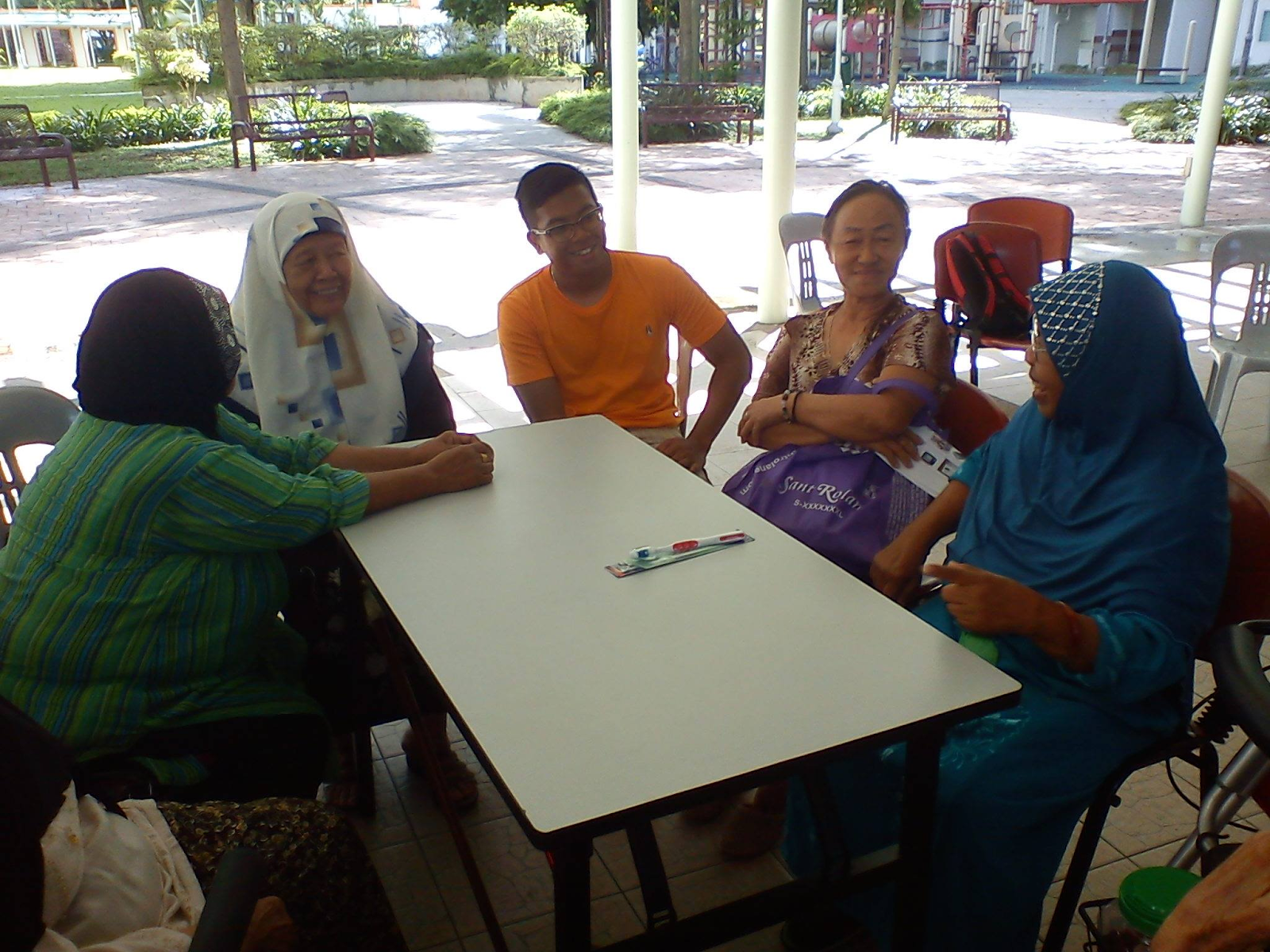
Do you do other volunteer work?
Another cause that I recently picked up is my duties as a volunteer para-counselor with the Singapore Anti-Narcotics Agency (SANA).
I do counselling on weeknights at the walk-in centre at Taman Jurong, where ex-offenders, current offenders, families affected by drug abuse, and youths at risk, can just walk in and have a chat with us and seek the relevant help to put their lives and aspirations together.
This also has given me much to think about as there are stories that are sometimes really impossible to believe, but they do happen.
Sometimes, it takes a toll on us because of the emotional investment, but we learn to cope with it and persevere on because we really want to see these people get better lives.
My experience with SANA has taught me that we should always have hope for others, even when they do not have hope for themselves.
Because everyone has their bad days and sometimes, all we need is hope, compassion, and patience from others.
What made you apply for a scholarship to further pursue your master's degree in Oxford?
Well, I am not going to lie. Obviously, the financial aspect is one consideration.
But because of my experience in volunteer work, I had begun to think about the policies and schemes that are in place for the underprivileged.
I discussed my options with my father prior to making my application for the PSC Master’s Scholarships.
He told me that since you have worked at the grassroots level for some time as a volunteer, perhaps it is time for you to “go up” to experience how the system works.
Maybe then you can make it more efficient or more accurate to the needs of the community with the experience you have, and the PSC Master’s Scholarships would enable me to work with a ministry after my studies.
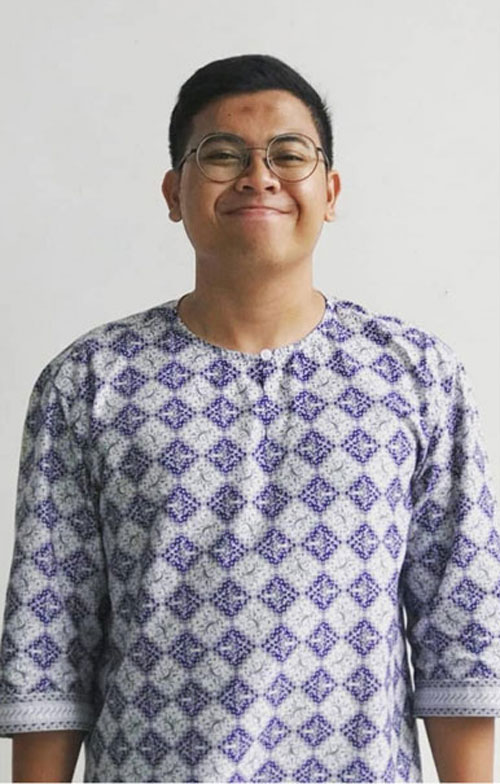
Why Buddhist studies?
This is the hot question.
I did a lot of Buddhist philosophy as a philosophy undergraduate, and if you ask me exactly why or what attracted me to Buddhist philosophical thought, I probably cannot give you a simple answer, nor do I intend to shortchange anyone with them.
But I can tell you for sure that Buddhist philosophy is one of the most intellectually rigorous and critical philosophical systems to exist and it really forces one to analyse and critically observe the things and phenomenon that we see in reality.
In fact, a huge part of Buddhist philosophy is focused on just analysis and critical reasoning, skills I believe will serve most, if not, anyone who studies it well, and indeed in my future as a civil servant.
I was also very attracted to the strong ethical slant that Buddhist thought has, and its focus on compassion, something that I personally have a soft spot for.
So, in a nutshell, I believe that an education that hones critical thought and cultivates compassion will definitely be useful in the public service -- two defining qualities that a civil servant should have.
In this aspect, Buddhism is very much close to my own personal beliefs as a Muslim, and this fact alone made it much more attractive to me.
Islam has always championed the acquisition of knowledge in all fields as a sacred duty, and I believe that I am doing exactly that.
Perhaps, we should learn to look at the acquisition of wisdom as a universal duty and virtue, rather than asking who is allowed to study what.
My position as a Muslim who is studying Buddhist thought is also of great significance today, as we see the rise of acts of terror in the name of Buddhism, Islam, and many other religions around the world.
I thought to myself that what if this happens to Singapore one day? Will we be prepared? I thought that we should not take the peace we enjoy for granted and we have only come this far because of constant upgrading and resourcefulness.
What are your plans after your master's degree?
Well, I plan to serve my bond! Quite excited at the prospect.
What is your personal philosophy?
If there is no time, then you make time. I also believe in second chances.
What words of encouragement or advice do you have for other students who come from low-income backgrounds?
There is always hope. Even when times are tough and nothing seems to be in your favour.
Because you are the hope.
If you think there is no more hope, then you become your own hope.
Work hard and be patient. And whenever you feel defeated or lacking in motivation, just remember what is it that you want to achieve and that a better tomorrow is waiting for you.
What are some of your hobbies or interests?
I enjoy reading. Reading allows you to gain knowledge and also allows me to escape.
I also enjoy doing ceramics, and currently in my free time, I am apprenticing with the local ceramics artist, Ahmad Abu Bakar.
I also read and write poetry and paint. I also enjoy visiting museums, art galleries, and libraries (it is free for students!).
Who would you like to dedicate your success to?
My parents, especially my father, for encouraging me and quelling my doubts.
He has also faced much criticism over my choice of study and the things I do, but he has never let those criticisms be in the way of my studies.
My mother who gave birth to me.
My siblings who are my biggest supporters. My friends -- you know who you are.
My numerous teachers from Gan Eng Seng, Millennia Institute, and NTU.
Read also:
If you like what you read, follow us on Facebook, Instagram, Twitter and Telegram to get the latest updates.
